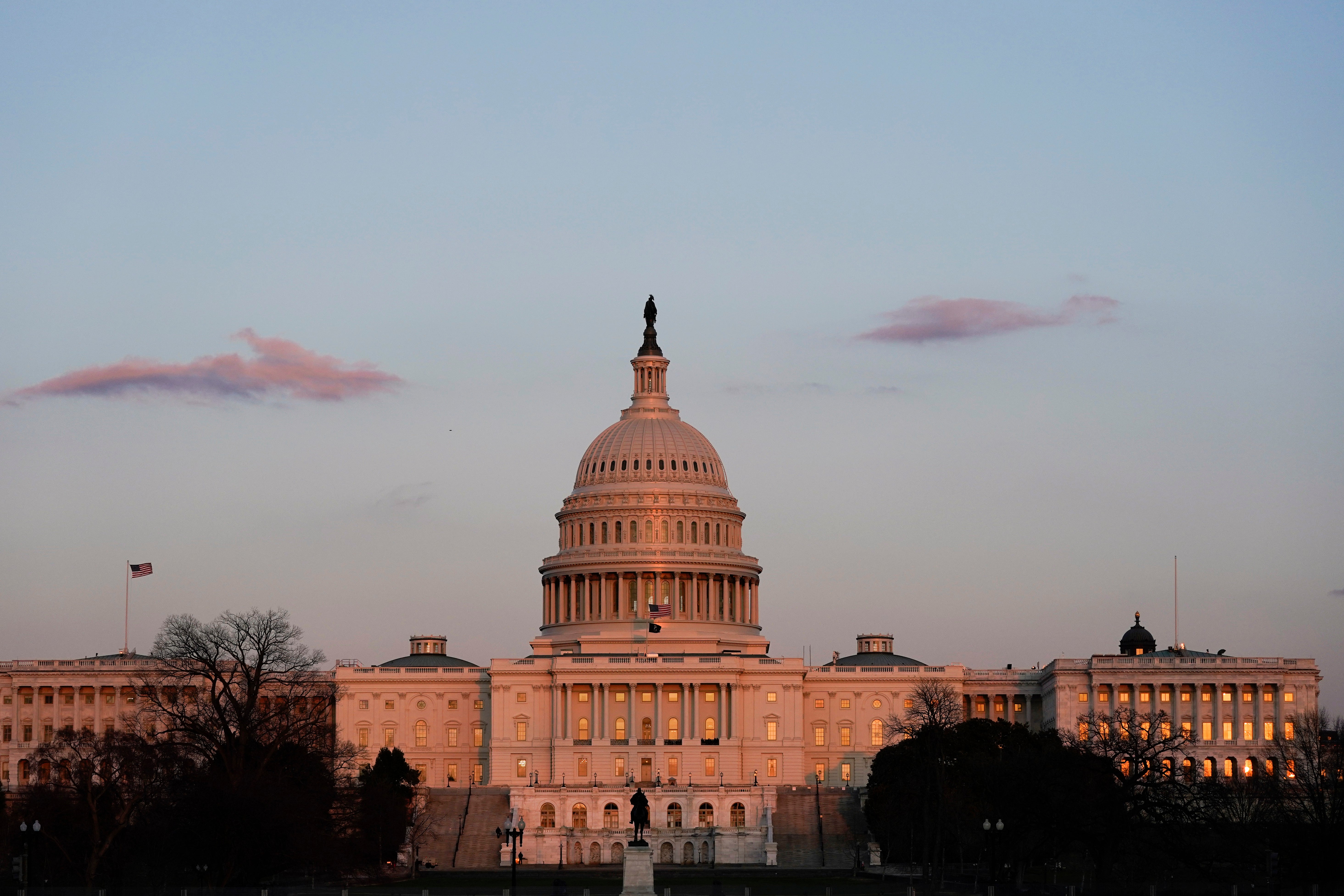Highlights: What's changed in the Senate's COVID relief bill
Senate Democrats have come out with their version of the $1.9 trillion COVID-relief bill

Your support helps us to tell the story
From reproductive rights to climate change to Big Tech, The Independent is on the ground when the story is developing. Whether it's investigating the financials of Elon Musk's pro-Trump PAC or producing our latest documentary, 'The A Word', which shines a light on the American women fighting for reproductive rights, we know how important it is to parse out the facts from the messaging.
At such a critical moment in US history, we need reporters on the ground. Your donation allows us to keep sending journalists to speak to both sides of the story.
The Independent is trusted by Americans across the entire political spectrum. And unlike many other quality news outlets, we choose not to lock Americans out of our reporting and analysis with paywalls. We believe quality journalism should be available to everyone, paid for by those who can afford it.
Your support makes all the difference.Senate Democrats on Thursday came out with their version of the $1.9 trillion COVID relief bill. A look at some of the major changes in the bill now being considered by the Senate versus what passed the House last week.
WHO GETS A CHECK
President Joe Biden and Senate Democrats have agreed to tighten eligibility for the $1,400 payments.
Under the House bill, the cash payment would phase out for singles with incomes between $75,000 and $100,00. But under the Senate bill, the phaseout stops at $80,000.
Under the House bill, the cash payment for married couples phased out between $150,000 and $200,000. But under the Senate bill, the phaseout stops at $160,000.
Most Americans will still be getting the full amount under either bill. The median household income was $68,703 in 2019, according to the U.S. Census Bureau.
Roughly 8 million fewer households will get a check under the Senate bill compared with what the House passed, according to an analysis from the Tax Policy Center.
$15 MINIMUM WAGE REMOVED
The Senate bill does not include an increase in the federal minimum wage to $15 an hour by 2025.
The Senate parliamentarian ruled that the minimum wage increase violated strict budget rules limiting what can be included in a package that can be passed with 51 votes rather than the 60 needed to overcome a filibuster.
MONEY FOR STATE AND LOCAL GOVERNMENTS
The Senate bill also provides $350 billion for state and local governments but adds the stipulation that the money can only cover costs incurred by the end of 2024. The Senate bill also prohibits states from using the money to offset tax cuts, nor can it be used to shore up a pension fund. The bill also requires that small states get at least the amount they received under virus legislation that Congress passed last March. Lawmakers are looking to focus the money on covering costs and revenue shortfalls arising from the pandemic.
MORE MONEY FOR HOSPITALS
Hospital trade groups lobbied senators to tack on more money for hospitals to help maintain sufficient staffing and purchase personal protective equipment while caring for large numbers of critically ill patients.
The Senate bill adds $8.5 billion for rural providers for COVID-19 relief.
HEALTH INSURANCE HELP
Workers who lose their job can remain on their company’s health plan for up to 18 months under a law known as COBRA, but they typically must pay the full monthly premium.
The House bill temporarily subsidized 85% of the insurance premiums, which can be expensive. The Senate bill will include a 100% subsidy of COBRA health insurance premiums to ensure that the laid-off workers can remain on their employer health plans at no cost through the end of September.
OTHER WINNERS
Amtrak would get an additional $200 million on top of the $1.5 billion in the House bill. There’s also an additional $510 million for homeless services under the Federal Emergency Management Agency and $175 million for the Corporation for Public Broadcasting. All COVID-19 student loan relief would be tax-free.